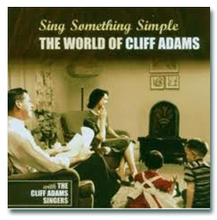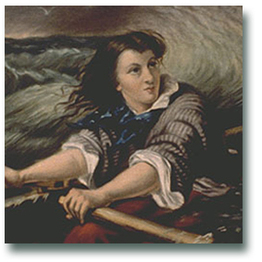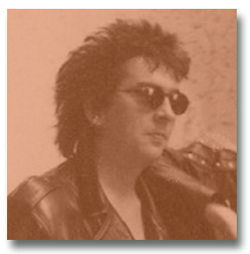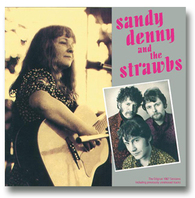
A fabulous start to the new year with an ulcerated toe.... these are details I think the rest of you can be spared.
To relieve the tedium my wife had the sound idea of taking her mother's Sony Walkman (she collects antiques) into the ward, so the patient could while away the daylight hours listening to music and audio books.
While I was unloading the dishwasher a few days ago, my daughter was sitting at the kitchen table flipping through her grandmother's CD collection. "Susan Boyle... Pam Ayres... Vera Lynn. Oh, Vera Lynn!"
Apparently the Second World War is now on the GCSE curriculum. Young people have knowledge of such vintage stuff. "White Cliffs of Dover....We'll Meet Again...." and then, after a slight pause...."Fairy Tale of New York."
It was at this point that £60 worth Le Creuset's durability was very nearly put to test by the quarry-tiled floor. The thought of the Forces Sweetheart belting out "You scumbag, you maggot, you cheap lousy faggot" was enough to test any slightly tipsy man's crockery handling ability.
"Vera Lynn sings The Pogues?"
"No Dad - Only Boys Aloud."
Which explained it. Sort of. The movement through my mother-in-law's musical archive had been swifter than I expected. But even so, Only Boys Aloud (also feat Only Men Aloud. So they are clearly liars, as they are allowed) covering one of my favourite festive songs is rather bizarre.
So. Cut to nostalgic moment. Yes, once again my mind drifted back to my musical youth. Only this time, to when I was very young. Very young indeed, dear readers. Very young indeed. Are you sitting comfortably? Then I'll begin.
Mother would be in the kitchen; as like as not preparing an apple crumble. The transistor radio would be tuned to the Light Programme, and if we weren't being taken to the Palm Court of Grand Hotel, we'd be in the company of the Cliff Adams Singers and that one-way family favourite, Sing Something Simple. The programme would be politely introduced by someone like David Jacobs, with a nice, relaxed informal manner - but even so we all knew he'd be formally dressed and that once the broadcast had finished, he'd be going on somewhere for dinner. Simpsons in the Strand, probably. This was rather comforting to the average Englishman in the 1960s.
To the uninitiated, the Cliff Adams Singers were the ultimate covers band of their time. They performed medleys of classic 'easy listening' numbers, often in little themed triplets. For example, they might start with "Oh I Do Like To Be Beside The Seaside, " move smoothly into "Somewhere Beyond The Sea," and round it all off with a quirky "Bobbing along on the beautiful briny," to the unexpected delight of middle-aged couples all over the kingdom. And me - who by this time would be trying to pretend I still had hot chocolate in my empty mug, so I could delay bedtime a little longer.
Just to prove they'd moved with the times, Cliff and the lads and lasses would zip a few Beatles songs in there too: the more up-tempo numbers like "Oh Bladdy, Oh Bladdah," "Yellow Submarine" and - it almost goes without saying -"When I'm Sixty-Four." The arrangements were simple and pleasing to the masses at the time - just a piano accompaniment, and occasionally the accordion - played for the duration of the ensemble's popularity by the splendidly named Jack Emblow.
Now here's a thing. Several decades after I was driving my James Bond car around the kitchen floor to the soothing background music of the Cliff Adams Singers, I found myself stuck in a traffic jam on the M25. Not far south of the junction with the M3, on a Sunday afternoon. It was the year 2000, and it was raining heavily. I turned on the radio,
and very nearly went into the back of a Vauxhall Astra. My jaw practically hit the steering wheel.
"We'll sing the old songs, like they used tooooo doooo,
we'll sing some-thiiiiing simple, for youuuuuu (some-thing-for-yoooooooou)."
They were still going! The Cliff Adams Singers live, in the new millennium, on the radio. The same format, the same suede-slip-on-tapping tunes, the gentle melodies, the soporific arrangements. They must have been well into their eighties. I let them wash over me until......
"You're everywhere and nowhere baby, that's where your at...."
(What the hell was going on?)
...going down a bumpy hillside, in a hippy hat...."
(Boo! Boo! We want a My Fair Lady medley!)
I could not believe it. A format which was, to say the least, dated when I was four years old, was still being bashed out on Radio 2. It was rather sad to hear Cliff's crew desperately clinging on to their broadcasting careers like Jack out of Titanic gripping Kate Winslet's flotsam. They just didn't cut it any more. Like old cricketers refusing to leave the crease.
This was all happening around the same time that Paul Young rang the station's controller to complain.
"I heard 'Wherever I lay My Hat' being played on Radio 2 last night!"
- "Yes?"
"Well, Radio 2 is for middle-aged people!"
- "And your point being, Mr Young?"
There was a second song in Cliff's millennium offering, but I can't recall what - for it was totally eclipsed by the third..... "We don't need no, education..we don't need no thought control!"
This was possibly a pivotal point in broadcasting: BBC Radio2 was about to ditch the old, and ring in the new.
Well, not quite so new. Paul Young et al. Not so much as moving with the times, as realising that its audience was changing. It was also about this time that I realised I was no longer a bright young thing at the cutting edge of music.
I suddenly became aware that an irate sales executive in a BMW two inches from my rear bumper was blasting his horn loudly. The traffic jam was clearing - and I snapped out of my trance. With a jolly two fingered gesture into my rear-view mirror, I re-joined the flow of traffic, and shook my head violently. "Perhaps you imagined it?" I said out loud.
I'd all but forgotten this musical interlude until the other night, when the unlikely Vera Lynn cover jogged my memory. So I googled Cliff Adams. Indeed the singers were still being broadcast at the time of his death in 2001.
Staggering. Even more astonishing, I discovered that one of the C.A. singers was the one-and-only Anita Harris - perhaps best remembered for going on Twopenny Bus Rides and being sawn in half by David Nixon.
And, in the usual rounded manner as this blog draws to a close, I can now publicise that Anita Harris is keeping the spirit of easy-listening alive by touring the UK this summer. I wonder if she'll be doing any bizarre cover versions?










 RSS Feed
RSS Feed
